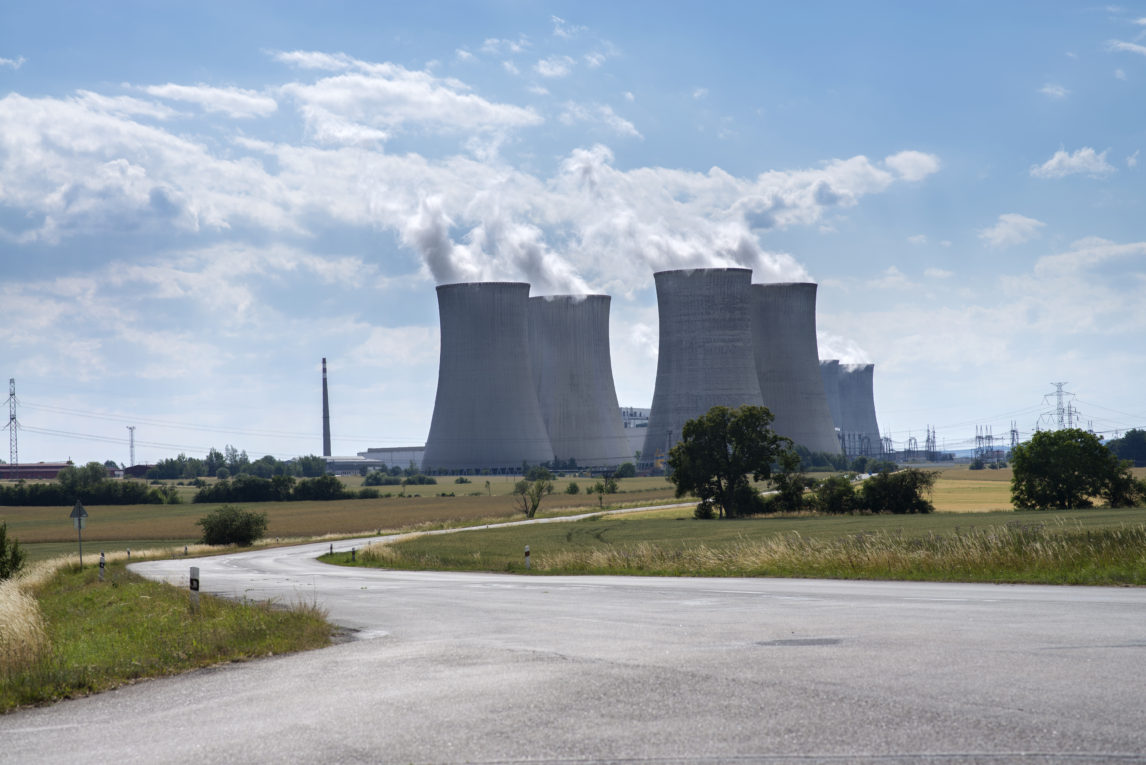FOR IMMEDIATE RELEASE
October 21, 2015
A deal has been reached by some parties to shorten the duration of the proposed subsidy for the Ginna nuclear reactor, owned by Constellation Energy Nuclear Group and located near Rochester, NY. The proposed agreement was filed today on behalf of Rochester Gas and Electric Corporation (“RG&E”), Ginna Nuclear Power Plant, LLC (“Ginna”), New York Department of Public Service Staff, Utility Intervention Unit, and Multiple Intervenors for consideration by the New York Public Service Commission and the Federal Energy Regulatory Commission.
Alliance for a Green Economy (AGREE) and Citizens’ Environmental Coalition (CEC) are active parties in the case, but oppose the proposed bailout of Ginna and aspects of the proposed deal. The two groups say the deal is an improvement over the original proposed contract for reliability support filed in the case, but they oppose the agreement because it does not do enough to protect consumers and the environment.
The agreement contains the following elements:
- The duration of the subsidy for Ginna is cut from the original 3.5 years to just 2 years. Instead of ending in September of 2018, the subsidy will end in March 2017.
- RG&E will not charge customers for the full cost of the subsidy. Electricity rates will go up, but not as much as had been proposed. The balance of the subsidy will be paid from customer credits RG&E is holding already from excess charges in the past.
- RG&E will perform a new, more detailed reliability study to determine whether RG&E’s proposed transmission alternative is adequate to replace the Ginna plant and whether other alternatives may be needed also. Many parties had serious reservations about the original reliability study that was used to justify the bailout.
AGREE and CEC released the following statement:
“The proposed agreement is better than the original bad deal that RG&E and Constellation tried to ram through before anyone could take a hard look. We are pleased to see the duration of the subsidy cut significantly, and the new reliability study will look at factors that should have been considered all along. This is a much better outcome for consumers and the environment than the first proposal.
“However, the proposed agreement fails to protect consumers and the environment on two accounts. First, the burden for RG&E’s bad planning is being put completely on customers. Even though RG&E had ample warning since early 2013 of Ginna’s financial challenges, the utility did nothing for a year and half to get alternatives lined up to replace Ginna. The utility’s failure to act proactively will now cost its customers millions of dollars a year, yet RG&E’s shareholders will pay nothing toward the costs of the subsidy. Proper planning is a utility obligation and consumers should not bear this unjust cost burden. We call on the PSC to hold RG&E financially accountable for its failure to act in a timely manner.
“Second, the agreement contains no commitments from Constellation in regards to responsibly decommissioning the Ginna reactor. Since closure is imminent, it’s critically important for New York’s leadership to get an agreement from the owners that it will begin an immediate, careful and thorough decommissioning process upon shutting down Ginna – one that protects workers and the local community from radiation exposure and a legacy of toxic and radioactive waste. We have called on Governor Cuomo and the Public Service Commission throughout this case to negotiate with Exelon/Constellation over these issues. Doing so could guarantee jobs for a large portion of Ginna’s workforce even after the reactor closes and could ensure that owners don’t mothball the site for decades to avoid cleanup.
“We will be working in the coming months to support the positive aspects of the joint agreement, while pushing the state and federal agencies to go further so that consumers and the environment are truly protected in the outcome of this case.”
The proposed agreement was the result of months of negotiations among groups and public agencies involved in the case. It will now be the subject of public comments and an evidentiary hearing. Ultimately, the NY Public Service Commission and the Federal Energy Regulatory Commission will both have to approve the deal before it can go into effect.
The Joint Proposal can be found online here: http://documents.dps.ny.gov/public/Common/ViewDoc.aspx?DocRefId={DF406288-FB6B-4540-BB0C-2EF3CCC0ECD6}
Contact Jessica Azulay
Alliance for a Green Economy
(917) 697-4472

